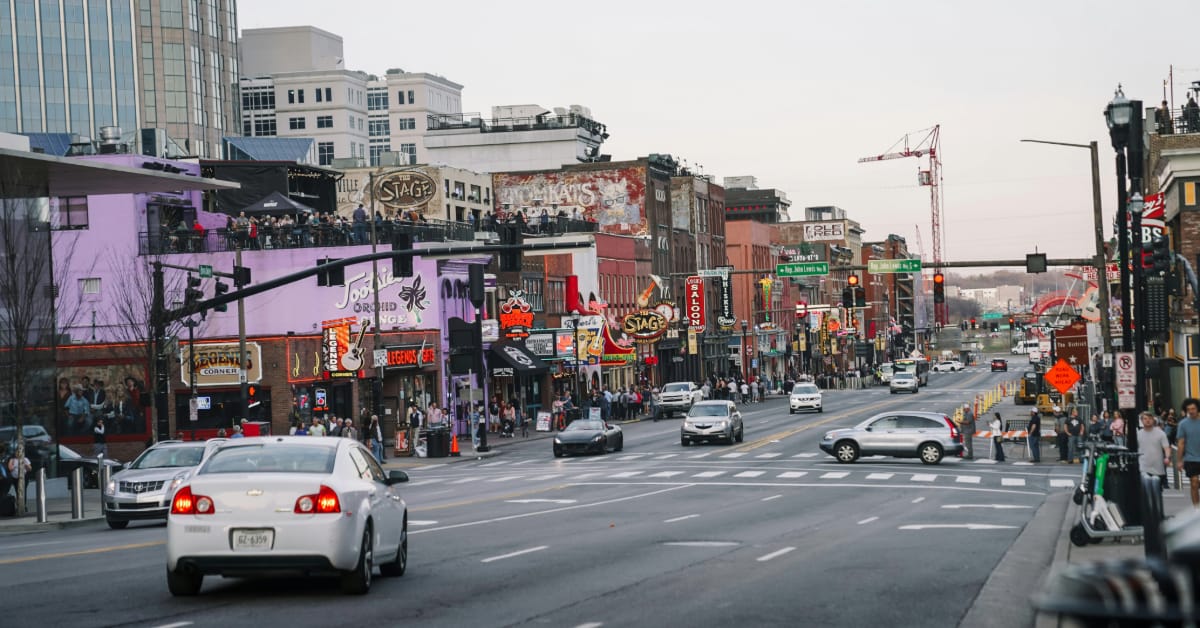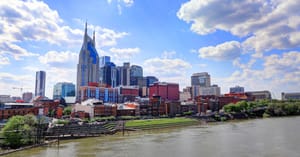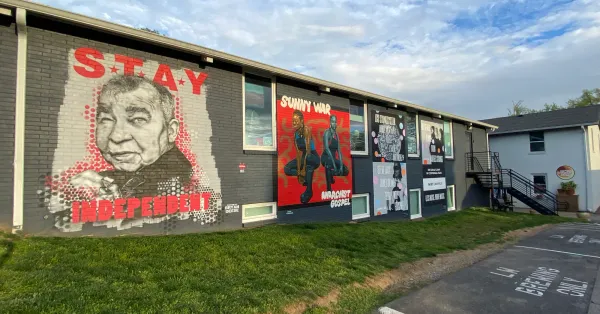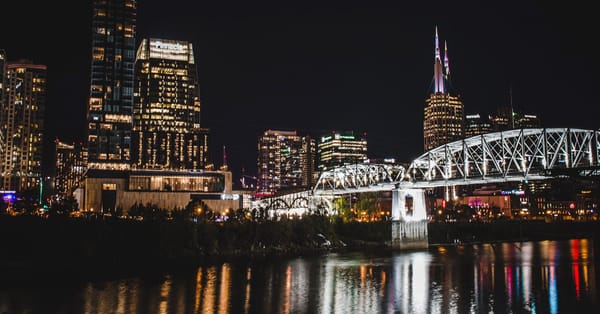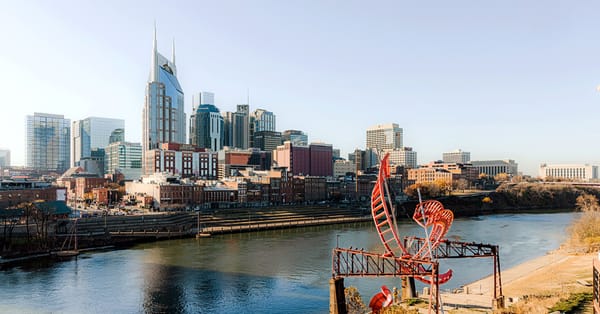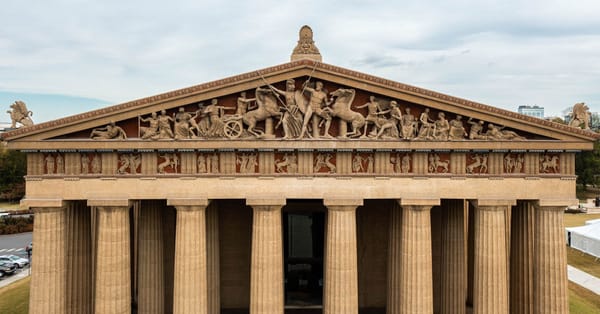There’s a lightbulb joke that I grew up hearing that goes like this: “How many Vermonters does it take to screw in a lightbulb? Three. One to screw it in and two to complain about how good the old one was.”
On my fourth visit to Nashville in the last fifteen years, it seems that Nashvillians and Vermonters (and much of the rest of the country) seem to have the same complaints.
“It’s too crowded.”
“They’re too many tourists.”
“The traffic is out of control.”
“It’s too expensive.”
“No one cares about the locals anymore.”
In almost every respect, the complaints are justified. Nashville’s population has grown exponentially from 450,000 to 1,333,000 in just 50 years.
In 2022, Nashville saw a record-breaking 14.4 million tourists. Nashville ranks 24th for the most congested city in the country, with worse traffic than Sacramento and San Antonio. And yes, it’s incredibly expensive, especially for locals who are shelling out an average of $1,594 for a one-bedroom apartment — 6% higher than the national average.
While these figures are concerning enough, I still wanted to get a better idea of the first-hand symptoms of Nashville’s growth experienced by Nashville’s locals. When I asked where to find them, the answer was almost unanimous — “Brown’s Diner”.
“Nashville has seen many changes around it over the years. As we celebrate our City's growth and prosperity, we promise that one thing will never change — Brown's excellent food at affordable prices.”
From their website, it’s easy to see why Brown’s Diner was one of the best suggestions I could have gotten for Nashville authenticity. The diner has been officially and continually open since 1927 (though this was contested by a Brown’s bartender who claimed they opened up in 1921) and proudly holds Nashville’s oldest beer license.
From the locals at the bar, I was told that Brown’s also had Tennessee’s first electric coffee percolator, and I can say from experience, that Brown’s is the best (and most affordable) breakfast I had while in town, as promised by their website. I sat at the bar with three gentlemen, all self-professed locals, and each from a different generation.
“If you ask me, the most authentic time in Nashville was the 90s.” Said a man in his late 40s. “It was still walkable then, and you could still find a cheap place to live.” The other men didn’t disagree until asked.
“Well, I moved here in the 70s. You can’t really beat that time. Though maybe, I’m biased.” The man was white-haired and dew-eyed and recalled a story about Bobby’s Idle Hour Tavern on Music Row.
“If you want to see the original Nashville, that’s the place to go. They’ve had a few different locations, but the locals really tried to keep it the same no matter where they moved to. On the day they moved from downtown to Music Row, they had the original bar on rollers with all of the customers helping to push it down 16th Street to the new location.” He laughed. “It was a sight to see.”
Unfortunately, not all local establishments were spared in Nashville’s infamous expansion. “The worst thing to me is the change in culture,” the third man said, generationally in between the two others.
“I used to work at the Soulshine Pizza Factory in the late 2000s. Some of the most amazing local bands used to play there; it had one of those official ‘Nashville Venue’ guitar pick signs. I guess they hadn’t properly soundproofed the place though. They got shut down because of too many noise complaints. Can you imagine that? An official Nashville venue getting shut down because of too much noise? I guess it wasn’t close enough to downtown.”
The irony wasn’t lost on this non-local, and it was one point of contention that I shared with the many full-time residents of Nashville. The noise downtown is insane. A beloved local establishment getting pushed out due to noise when dozens of cheaply done bachelorette traps in the downtown area get to stay and wreak havoc on the eardrums of local citizens is certainly frustrating.
But even with the frustration that Nashville locals have towards the rapid expansion of their city, one thing was missing — animosity. Because of Nashville’s history as a tourist destination and its position as the Music Capitol of the World, locals are generally tolerant of visitors and transplants, even ones that bug the heck out of them.
“If you’re genuinely here to experience music history and culture, you tip your bartenders and musicians, and you’re not a menace, you’ll have no problem with locals. Many of us moved here for the same reasons. And you know what? I’ve been on one of those party wagons —they’re fun as hell.” One local said while throwing her hands up in the air, screaming, laughing, and mimicking a sound that you can’t live in downtown Nashville without hearing every three seconds.
So What Does All Of This Mean For The Future Of Nashville?
The good news is that as far as the population goes, there are signs of stabilization. While Nashville had steady growth between 2020 and 2021, more recent data from the US Census Bureau has shown that Nashville has taken a small dip in population since then — about a 0.8% drop.
More specifically, the 2022 US Census findings estimated that the population in Nashville was around 683,622 people for that year meaning that around 16 people left Nashville per day between 2021 and 2022. This isn’t to say that Nashville is done growing, but the insane levels of yearly growth are likely over — for now.
The biggest takeaway I found when talking to local Nashvillians is that the problem isn’t necessarily the population growth itself, but the lack of infrastructure to keep up with it. This not only includes a highway and transportation system in desperate need of a tune-up but also legislation issues surrounding historical preservation.
While the city has rightfully tried to hold onto historic buildings such as the Ryman Auditorium and Tootsie’s Orchid Lounge, there’s been a major failure to preserve the quaint and historic neighborhoods surrounding the city in the battle against Airbnb.
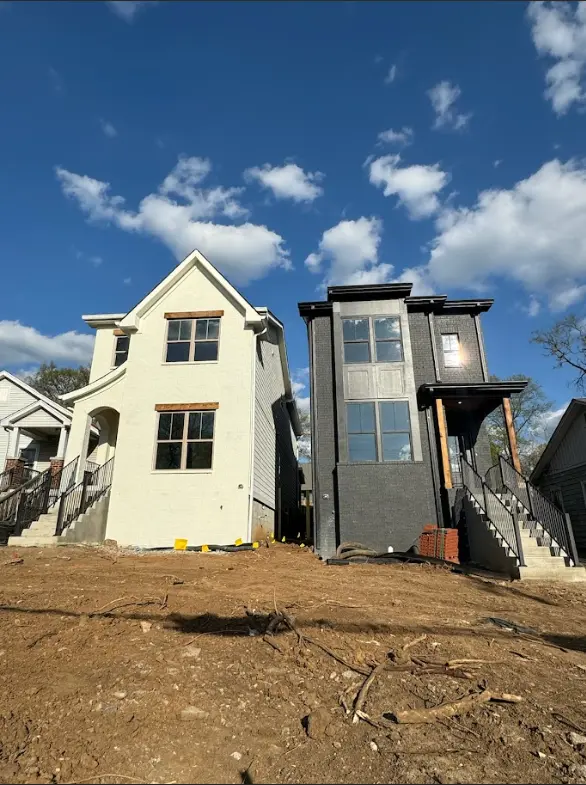
“It seems like a new one goes up every day,” one local friend said while pointing at a “tall and skinny” — a name given to the obvious Airbnb architecture of a one-room accommodation on top of another. “They knock down these beautiful [mid-century] homes and build cheap-looking structures that look like shit and that no locals can rent.”
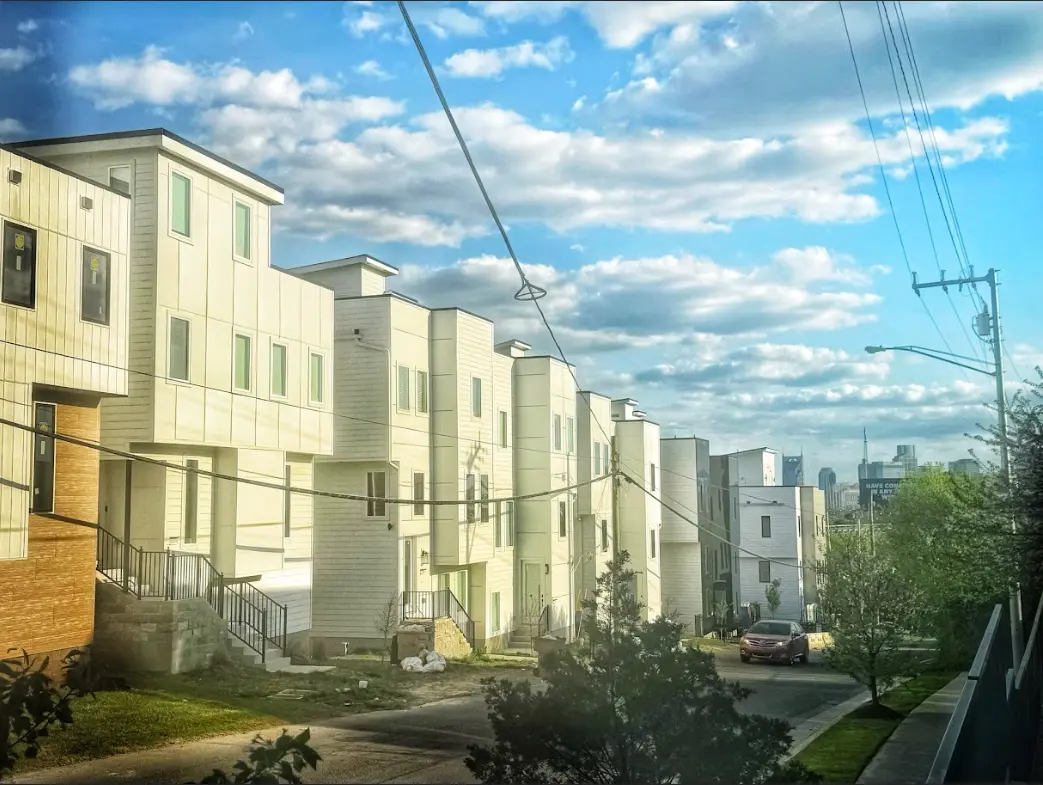
Even as a tourist, I also experienced genuine frustration at this seemingly impulsive method of expansion.
When I was compiling a list of all of my favorite places to explore upon arrival to Music City, I felt my stomach turn — how was Kid Rock's Big Ass Honky Tonk Rock N' Roll Steakhouse allowed to keep pumping out disgusting food and blast obnoxious music for all of downtown Nashville, but one of the pinnacle artist museums in the city, The George Jones Museum, was forced to shut down and become a sports bar?
Is Nashville Past Its Prime?
The answer is more complicated than you might think. When sitting at the bar in Brown’s, Nashville’s “prime” ended simultaneously in the 1970s, the 1980s, and the 1990s, depending on the age of the person you asked.
If we follow the same trend, a lot of the younger folks living in Nashville will probably tell you that it ended in the 2000s, and years from now, others will tell you that Nashvillians are living in Nashville’s prime right now.
At the end of the day, Nashville is still a great place to move to, but as with moving to any big city, preparation is key. If you’re choosing to move to Nashville because of a trip you took there 30 years ago (or even just 5 or 10), you might not recognize the place.
Many of your old favorites might not be there and you’ll likely find that it’s much less affordable to live there than it once was. That isn’t to say you won’t have a good time; there’s plenty of amazing music to see, diversity, food, and you can’t beat the festivals and events, but it’s not the same city as it was. And that’s not necessarily a bad thing.
If you’re simply visiting, you’ll also need to be prepared, but in a slightly different way. While downtown Nashville might have been your cup of tea a decade or two ago, it’s likely much too crowded and too expensive for you now.
Unless you’re looking to get absolutely wasted and spend hundreds of dollars on a less-than-genuine experience, you’ll want to seek out some of the surrounding neighborhoods such as East Nashville, Music Row, or Germantown where you’ll find hundreds of unique bars, talented musicians, and a lively atmosphere (without the eardrum-shattering squeals of bachelorette groups).
You’ll also find that parking is easier, hotels and transportation are cheaper, and people are friendlier.
Lastly, as a local advised me earlier in this article, the biggest piece of advice I can relay for a new visitor is “don’t be a menace.” The more respect you give to locals, the more enjoyable your vacation will be.


